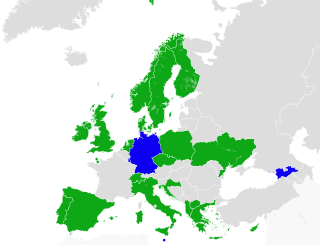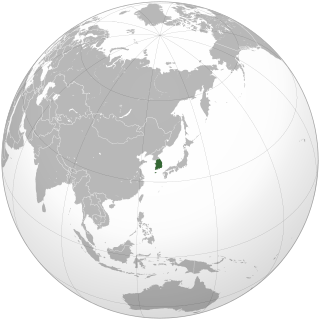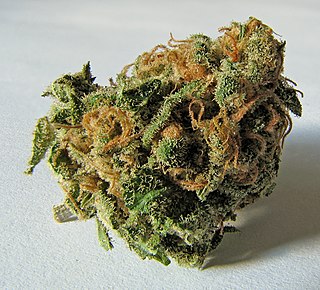Related Research Articles
A drug policy is the policy regarding the control and regulation of psychoactive substances, particularly those that are addictive or cause physical and mental dependence. While drug policies are generally implemented by governments, entities at all levels may have specific policies related to drugs.

Drug liberalization is a drug policy process of decriminalizing, legalizing, or repealing laws that prohibit the production, possession, sale, or use of prohibited drugs. Variations of drug liberalization include drug legalization, drug relegalization, and drug decriminalization. Proponents of drug liberalization may favor a regulatory regime for the production, marketing, and distribution of some or all currently illegal drugs in a manner analogous to that for alcohol, caffeine and tobacco.

Canada's drug regulations are measures of the Food and Drug Act and the Controlled Drugs and Substances Act. In relation to controlled and restricted drug products, the Controlled Drugs and Substances Act establishes eight schedules of drugs and new penalties for the possession, trafficking, exportation and production of controlled substances as defined by the Governor-in-Council. Drug policy of Canada has traditionally favoured punishment for the smallest of offences, but this convention was partially broken in 1996 with the passing of the Controlled Drugs and Substances Act.
The drug policy of Germany is considered to be one of the most lenient among European Union (EU) countries. Policies vary depending on the state.

Cannabis has been cultivated in Japan since the Jōmon period of Japanese prehistory approximately six to ten thousand years ago. As one of the earliest cultivated plants in Japan, cannabis hemp was an important source of plant fiber used to produce clothing, cordage, and items for Shinto rituals, among numerous other uses. Hemp remained ubiquitous for its fabric and as a foodstuff for much of Japanese history, before cotton emerged as the country's primary fiber crop amid industrialization during the Meiji period. Following the conclusion of the Second World War and subsequent occupation of Japan, a prohibition on cannabis possession and production was enacted with the passing of the Cannabis Control Law.
Cannabis in Latvia is illegal for recreational and medical purposes, but production of industrial hemp is permitted.

Cannabis in the Netherlands is illegal, but is decriminalised for personal use. Recreational consumption of the drug is tolerated, and it is available in coffeeshops.

Cannabis in Slovakia is illegal for all purposes and possession of even small amounts of the drug can lead to lengthy prison terms. Possession or use of small amounts of cannabis is punishable by up to eight years in prison. In April 2012, The Wall Street Journal reported that Robert Fico, the incoming Slovak prime minister, might push for partial legalisation of cannabis possession, and has argued for the legalisation of possession of up to three doses of cannabis for personal use.
The list includes and details significant events that occurred in the global history of national-level implementations of, or changes made to, laws surrounding the use, sale, or production of the psychoactive drug cannabis.

Cannabis in South Korea is illegal for recreational use. In November 2018, the country's Narcotics Control Act was amended and use of medical cannabis became legal, making South Korea the first country in East Asia to legalize medical cannabis.

The manufacture, possession, and consumption of cannabis in Trinidad and Tobago is decriminalized.
The German cannabis control bill is a bill passed by the German Bundestag in February 2024, and the Bundesrat in March, that legalised the adult use of cannabis in Germany, as well as the personal possession and cultivation of limited amounts of cannabis by adults in Germany, beginning on 1 April 2024. Adults in Germany are allowed to possess up to 25 grams of cannabis in public and up to 50 grams of dried cannabis at home. Each individual adult in Germany may also have up to three of their own cannabis plants at home. As part of the bill, adult-only non-profit cannabis social clubs with a maximum of 500 members became legal in Germany on 1 July 2024.
The Cannabis Act is a law which legalized recreational cannabis use in Canada in combination with its companion legislation Bill C-46, An Act to Amend the Criminal Code. The law is a milestone in the legal history of cannabis in Canada, alongside the 1923 prohibition.
Cannabis in Bolivia is illegal, but cultivated illicitly, mostly for domestic consumption. Bolivian law treats cannabis equally to cocaine, with possession of one gram punishable by 10–25 years in prison.
In Barbados, cannabis is illegal for recreational use, but is in high demand nonetheless. Cannabis is sourced from St. Vincent and Jamaica by local dealers who pool resources to buy consignments of the drug, transported by go-fast boats.

Cannabis in New Brunswick became legal for recreational use when the Cannabis Act went into force across the country on October 17, 2018.
Cannabis in Antigua and Barbuda is illegal but decriminalized. The islands are not a major producer of cannabis, and instead import the drug from Jamaica and Saint Vincent and the Grenadines.

Cannabis in Brunei is illegal and can be punishable by caning or the death penalty. Brunei Darussalam's legislation is controlled by its sultan and is based on the country's Sharia-Islamic beliefs. In accordance with these laws, Brunei native, Lam Ming Hwa, received the death sentence in 2004 and a Malaysian native, Muhammad Mustaqim Mustofa bin Abdullah, was sentenced to death in 2017.
Cannabis in Saint Kitts and Nevis is illegal but decriminalized. Cannabis is grown on the islands for local consumption, previously in the mountainous interior for the most part, but more recently in abandoned sugar cane fields as well.
Cannabis is illegal in the Dominican Republic.
References
- ↑ William R. Brownfield (May 2011). International Narcotics Control Strategy Report: Volume I: Drug and Chemical Control. DIANE Publishing. p. 253. ISBN 978-1-4379-8272-5.